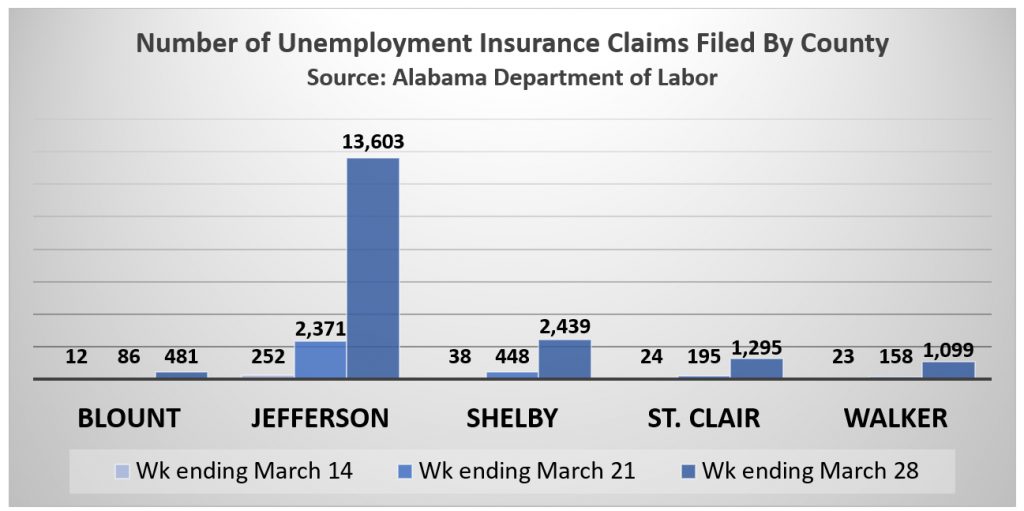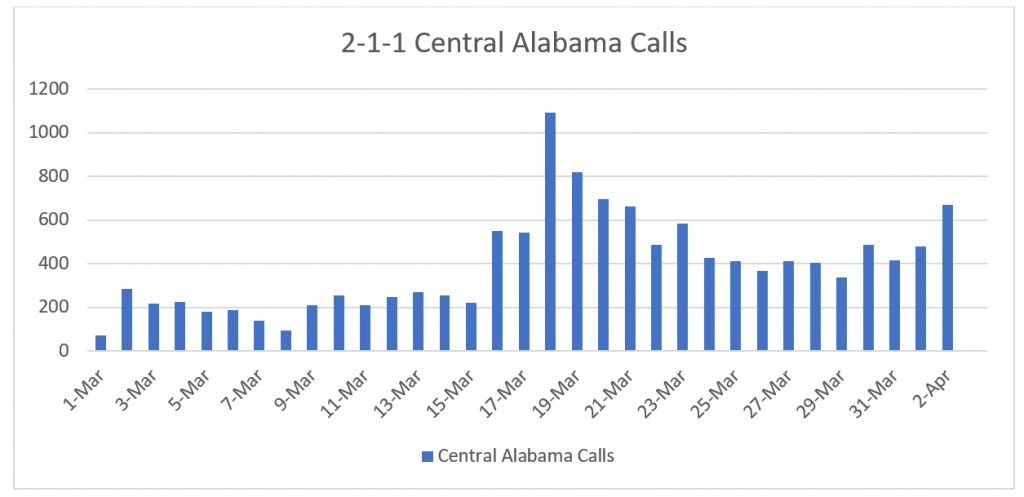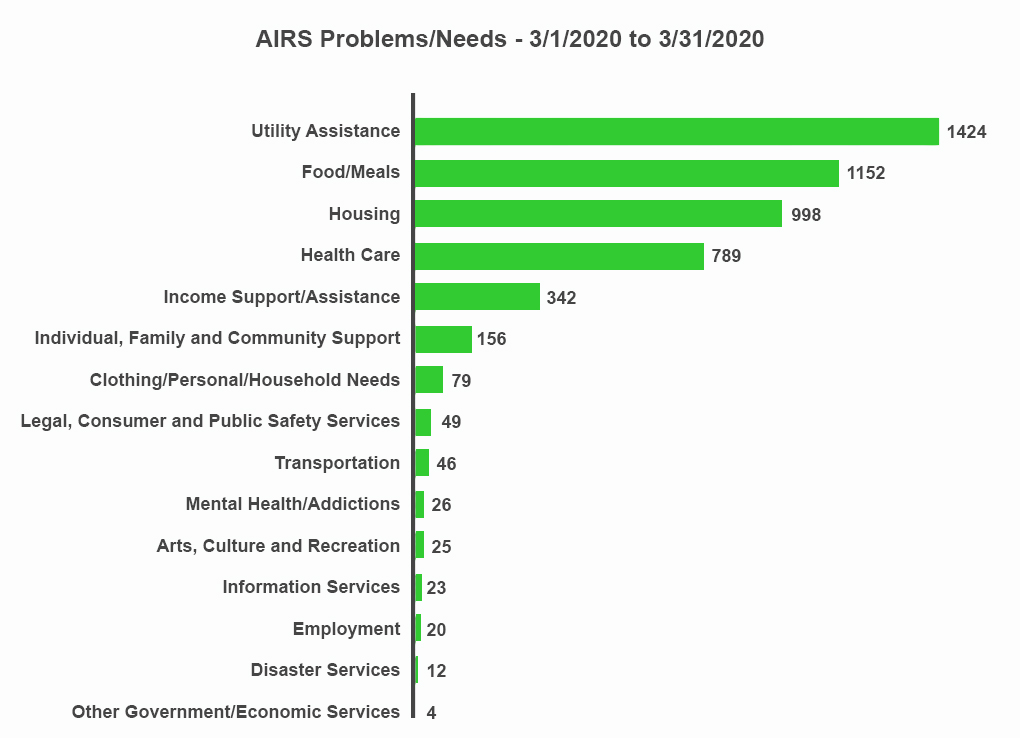Most of the world is intensely focused on the health crisis caused by the Coronavirus. Each night, I turn on the evening news and I see the ticker scrolling the most recent death counts. Hospitals are scrambling for resources to treat the sick who are arriving at their doors in mass.
Here at United Way, like most businesses, we had to accelerate our remote working plans. We had to look at every process from communication and internal meetings to how we reorganized the services we provide to clients. Two areas that we impacted heavily were 2-1-1 and Meals on Wheels.
Our Meals on Wheels program feeds approximately 2,000 elderly per day. About 900 were fed in congregate settings such as senior centers. The remainder received a daily hot meal delivered to their door by a volunteer. We had to quickly change the entire distribution model for the program. To keep our seniors safe, we purchased almost 15,000 “shelf-stable” meals for our seniors to use as back-up in case of an interruption in service. We ultimately shifted from daily delivery to packs of seven meals delivered weekly. We then asked for volunteers to help by calling our seniors in lieu of the daily personal contact (and safety checks) seniors previously received from the volunteers making home deliveries.
At the same time, those of us in the social sector are seeing the front edge of the secondary crisis caused by the shutdown of business. Never in my 33 years in the helping sector have I seen human needs increase with the velocity we are seeing today. For the week ending March 14th, our Central Alabama community experienced 349 new people filing for unemployment benefits. Two weeks later, during the week ending March 28th, we experienced almost 19,000 people apply for unemployment.

The people on the front lines of this wave of newly unemployed are mostly people in the service sector and part time workers who are already on the edges of our economy. Heading into this crisis, our research told us that most people in Alabama don’t have enough savings to handle a $400 emergency. These peoples’ lives have been thrown into chaos.
Here at United Way, we are hearing their voices and desperation as they call our 2-1-1 operators looking for information on where to go to get help. In a normal month, we receive about 3,500 calls. During the month of March, that number skyrocketed to almost 13,000 calls. We shifted staffing responsibilities and recruited volunteers to cover the increasing calls for help. We now have 62 trained operators — up from five at the beginning of March.


Our operators hear the fear and frustration in callers’ voices and too often the places that normally help these kinds of callers have been overrun and are out of resources. These resources are the front-line heroes running food pantries, soup kitchens and the utility, rent and emergency-assistance fund across our community. They are in community centers, churches and non-profits.
To help meet this need, United Way looked back to 2009 when we saw unemployment spike during the recession. We have re-opened our Community Crisis Fund. This model was extraordinarily effective at moving food and funds to these critical organizations as demand ramped up.
This time, we have added distressed non-profits, as well as support for feeding programs and emergency assistance, to the Community Crisis Fund. We just made our first round of grants totaling $154,000. Many of the recipients are churches or groups associated with ministries and grassroots organizations providing food, medical transportation, prescription assistance and emergency utility payments.
We are actively raising funds to provide these much-needed services on a monthly basis. To help, go to www.uwca.org/COVID19.